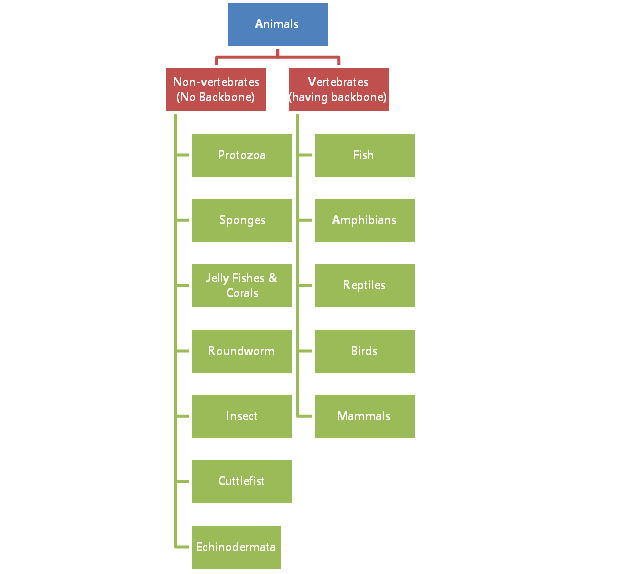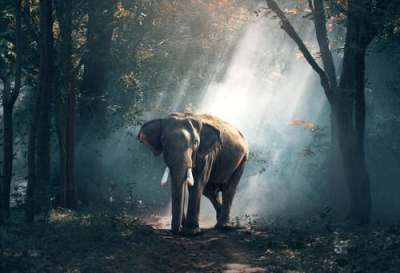
There are various types of animals in the world. Some animals have their special characteristics. Animals and their characteristics are given below in this post. These animals characteristics are important for competitive examinations like CTET, UPTET, TET, KVS etc.
1 – Elephant
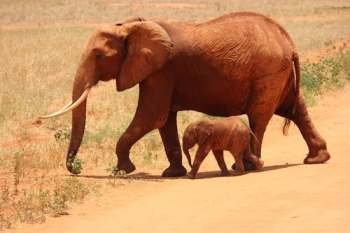
Elephants is herbivorous (feed on plants) animal. One elephant can eat 300 pounds (136 kg) of food in one day. They drinks about 2 gallons(7.5 litres) of water at a time. Elephants sleep and rest less to maintain body temperature. They have large ear flaps which help to control their body temperature. Elephant trunk is elongated nose and upper lip.
Female tend to live in family groups. Leader of group is the oldest female elephant. Male leaves their family group when they reach puberty. Calves are the centre of attention in their family group and rely on their mother for as long as 3 years. Their life span is about 70 years.
2 – Chimpanzee
Chimpanzee is a very clever animal. They live in groups of 3 to 80 members. Elder male is the leader of the group. Their life span is about 50 years.
3 – Giraffe
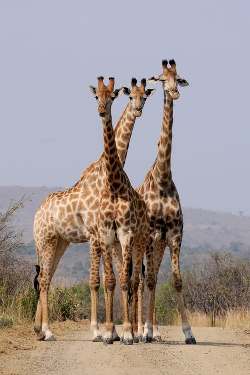
Giraffe is tallest mammal of the earth. Their height is about 5 meter. They sleep for very less time (2 hrs in 24 hrs). They can eat around 25 kg leaf in a day. Their life span is about 25 years.
4 – Whale
Blue whale is the largest animal of earth. They are mammals. Their life span is about 90 years.
5 – Earthworm
An earthworm is a tube shaped segmented worm. They live in soil. They feed live and dead organic matter. Earthworm improve soil fertility by converting large organic matter into rich humus. Hence they are also considered farmers’s friend. Earthworms are useful in making vermicompost also. Their life span is about 8 years.
Read – UPTET Previous Years Idioms and Phrases Questions
6 – Dolphin
Dolphins are mammals. Dolphin live in social groups of 5 to several hundred members. They use echolocation to find prey and communicate with each other in water. Gangetic dolphin is national water animal of India and it is said to represent the purity of holy Ganga river as it can only survive in pure and fresh water. Their life span is about 25 years.
7 – Tiger
Tiger is known as king of the forest. Tiger may consume upto 40 kg (88 pond) of meat at one time. It has two times more sight capacity than humans in night. For hearing they can move their ears in different direction. Their roar can be hear upto 3 kms. Their life span is about 26 years.
8 – Rhinoceros
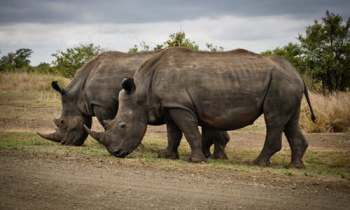
Rhinoceros is second longest terrestrial animal after elephant. Rhinoceros are herbivorous (feed on plants). Their weight may be 1000 kg. They have around 1 ½ cm thick skin. They have one horn on nose hence called as rhino. Their life span is about 50 years.
9 – Sloth
Sloth are mammals which looks like beer. Sloth are nocturnal (active at night) animal. They sleep around 17 hrs in day time. They are good swimmer and their life span is about 25 years.
Sloth make very good habitat for other organisms and a single may be home several species of moths, beetles, cockroaches, fungi and algae.
Also read – Animals under Environmental Studies (EVS)
You may use ‘comment section’ below for your valuable comments/feedback.
Check Complete List – Competitive Exam Preparation
- विभिन्न क्षेत्रों के विभिन्न प्रकार के घर Different Type of Houses
- UPTET Previous Years Questions on Environmental Studies – UPTET 2017
- Festivals, Traditional Art & Crafts of India – EVS
- EVS MCQ Exercise Practice Set-1 for CTET & TETs
- CTET Previous Years Questions on Environmental Studies with Answer



